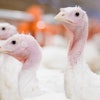
Brazilian egg production is expected to end 2021 2% higher, with output reaching 54.5 billion eggs — a new record. A record should also be set for per capita consumption. Forecasts from industry association the Brazilian Association of Animal Protein (ABPA) suggest that per capita egg consumption this year will reach 255, an increase of 1.5% in comparison with 2020.
A number of factors are thought to be driving higher consumption. ABPA notes that availability has improved and myths about the eggs have now largely been dispelled. More importantly, however, eggs are the cheapest form of animal protein.
Eggs the cheaper option
A growing number of Brazilian consumers are having to think very carefully about the food that they buy. Food insecurity in the country has increased dramatically, according to survey results published in October. The National Survey of Food Insecurity in the Context of the COVID-19 Pandemic in Brazil, conducted in December last year, surveyed consumers across five regions of the country. Conducted by the Brazilian research network for food and nutritional sovereignty and security, 55.2% of households were found to be living with food insecurity – an increase of 54% since 2018
Now, like much of the rest of the world, Brazilian’s are suffering from food price inflation. In September, a survey conducted by DataFolha, a data research company, asked consumers if they had reduced or increased consumption of any foods since the start of the year.
Eighty-five percent of respondents said that they had cut back on at least some items, with 67% saying that they were now consuming less red meat. The survey also found that Brazilians are consuming less chicken and pork but that 50% of respondents were consuming more eggs.
Egg industry problems
Egg producers, however, have been dealing with their own inflation issues, including for corn, soya, packaging and electricity, amongst others.
While some months have seen feed costs fall the trend has been upwards and not all egg producers have been able to survive. Earlier in the year there were reports that a number of companies were operating at a loss due to, for example, corn prices being double those of a year earlier, with packaging costs rising by 80%. At that time, there were fears that not all producers would survive. Now, however, there are reports that some smaller producers have ceased operating and that some flocks have been culled.
There have been notable price swings for eggs during the year, with records being broken and prices falling back. But even these increases have not been enough to fully compensate for increased input costs. Looking to the next 12 months, the country’s largest egg producer forecast that egg prices could rise by 15-20% to reflect higher input costs.
Next year’s demand forecast is even more positive than for the remainder of 2021. For 2022, ABPA predicts that production will grow by 3%, while per capita consumption if forecast to rise to 262.
Brazilian egg exports rising
The first six months of this year saw Brazilian egg exports reach 5,800 metric tons, an increase of 145.1% in comparison with the same period last year. By value, the increase was even greater, rising by 152.9% to reach US$8,024 million.
ABPA notes that the sector is making a greater effort to export in an attempt to counter rising input costs at home. Sales to Saudi Araba, Brazil’s main export destination for eggs, rose by 358.4%, while sales to Japan, another key destination, were also significantly higher.


















